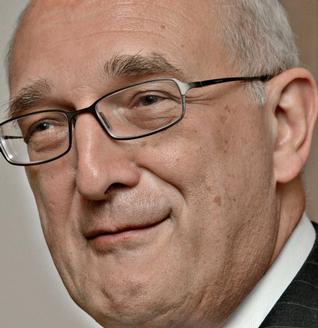Bangalore, September 18: While several developed countries have adopted public health measures to prevent and manage cervical cancer — the second commonest cancer among women worldwide — the disease continues to be a scourge on the poorest societies, said Leszek Borysiewicz, Vice-Chancellor of Cambridge University.
The cancer, which kills 2.5 lakh women worldwide every year, “needs a public health policy”, said Prof Borysiewicz, adding that regular screening and driving a preventive vaccine into the public health programme has helped reduce the incidence of cervical cancer in countries such as the United Kingdom.
Cervical cancer is associated with human papillomavirus (HPV) in 96 per cent of cases and “is entirely screenable and treatable”, said the medical researcher, who was instrumental in the development of the HPV vaccine.
Prof. Borysiewicz was speaking on Tuesday at the launch of the Centre for Chemical Biology and Therapeutics, a collaborative initiative between Cambridge University and inSTEM, an allied institute of the National Centre for Biological Sciences.
In most cases, HPV does not translate into cervical cancer as the human immune response is incredibly strong against the virus, with a majority of HPV infections showing spontaneous regression. Being a slow progressing cancer, with cells that divide slowly, the disease lends itself to quick intervention, said Prof. Borysiewicz.
Slow progressing
“The disease has a slow progression and is often local,” he said, adding that while early detection and diagnosis is easy, it is also vital in managing the cancer, which, at its third and fourth stages, is difficult to cure: “Chemotherapy needs rapidly dividing cells.”
The new centre aims to develop new treatment approaches to diseases such as cancer, by combining genetics, chemistry, cell biology and biochemistry.

